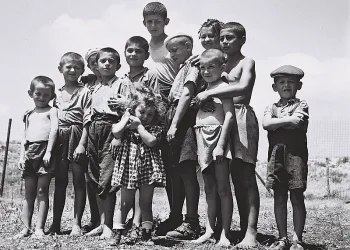As Ukraine faces escalating challenges on the battlefield, the European Union steps up efforts to maintain support against Russian aggression. Josep Borrell, High Representative of the EU, met with Poland’s Foreign Minister Radosław Sikorski to discuss strengthening European defense commitments for Ukraine.
With the future of transatlantic support uncertain, Poland’s role has become crucial in keeping European solidarity intact.
Translations: Polish/French/Spanish
Europe’s Stance: Navigating New Challenges with the U.S.
Borrell’s meeting with Sikorski came after a recent visit to Ukraine, reinforcing Europe’s commitment amid evolving global dynamics. The United States’ position on Ukraine could shift with the incoming administration, raising concerns about potential funding cuts or altered military support.
Borrell emphasized that Europe must “take its own responsibility” and avoid passively reacting to U.S. decisions.
“We cannot be in a situation where the United States acts, and the Europeans react,” Borrell stressed. “We have to reassure Ukraine that our support will continue.”
This statement underscores a pivotal change in Europe’s strategy, moving from a support role to a leadership role in maintaining security.
Poland’s Central Role in European Defense Efforts
Poland has consistently been at the forefront of efforts to provide military and humanitarian aid to Ukraine. Sikorski echoed Borrell’s sentiments, reaffirming Poland’s commitment to helping Ukraine defend itself.
Poland’s proximity to the conflict and its historical ties to the region make it a key player in organizing European assistance and advocating for sustained aid.
Country |
Primary Contribution |
Financial Support |
|---|---|---|
| Poland | Military and logistical | $1.8 billion (2023 est.) |
| Germany | Weapons and training | $1.2 billion (2023 est.) |
| France | Intelligence and strategy | $900 million (2023 est.) |
Main Points from the Discussion
The conversation between Borrell and Sikorski addressed both immediate needs and long-term goals for European defense. Notably, they agreed that Europe must actively address three key areas:
- Financial resources: Ensuring ongoing financial support amid competing priorities, like climate initiatives and digitalization.
- Quick response mechanisms: Utilizing current structures effectively, rather than creating new systems.
- Leadership: Ensuring Europe’s autonomy in decision-making without waiting on U.S. actions.
These focus areas highlight Poland’s proactive approach within the EU, ensuring that Ukraine’s defense remains a priority.
Funding and Strategic Commitments Moving Forward
Funding emerged as a critical component in Borrell’s remarks. While Europe has invested heavily in Ukraine, the war’s sustained intensity demands additional resources.
This funding is critical not only for weapons but also for support mechanisms like the European Peace Facility, a program that has faced delays due to administrative bottlenecks.
Borrell underscored that “political will” is essential to make these existing systems more responsive, noting that European defense must focus on flexibility and readiness.
Collaborative Leadership and the Foreign Affairs Council
The upcoming Foreign Affairs Council meeting, scheduled for November 18, is expected to shape Europe’s near-term strategy for Ukraine. The council will assess Ukraine’s defense needs and discuss potential responses to any shifts in American policy.
European leaders will also evaluate broader security policies, with Poland playing a pivotal role in this dialogue.
The Council’s decisions will likely include:
- Further strengthening of the European Peace Facility to provide swift support to Ukraine.
- New financial pledges from key EU members to ensure consistent funding.
- Additional policies to secure long-term independence in European defense strategies.
A Clear Path Forward
With Poland’s continued support and Borrell’s call for unified European action, Ukraine’s position has garnered renewed strength from its European allies. The next steps for the EU will be crucial in determining not only Ukraine’s resilience but also Europe’s role in global security.
The meeting between Borrell and Sikorski reflects a critical moment in European diplomacy, as nations unite to forge a sustainable and autonomous path for Ukraine and the EU at large.
Sources: THX News & European Union.








